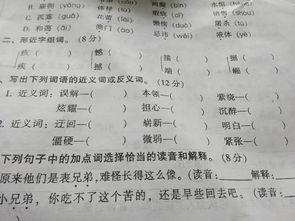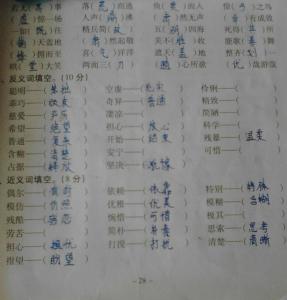blame近义词:
blame, accuse, condemn, scold, denounce, reproach, rebuke
blame近义词辨析:

这些动词均含有"责备,非难"之意。
blame 普通用词,语气较弱,仅是一般的责难、归咎于,不含用语言责骂之意。
accuse 语气比blame强,本义为归罪,可用作指非难或谴责之义。
condemn 正式用词,表示谴责,有较强的司法意味,侧重从道义或原则上的谴责。
scold 普通用词,多指上级对下级、长辈对后辈或雇主对雇员的态度粗暴、言词激烈的数落。
denounce condemn同义,但着重公开性。
reproach 侧重指因他人粗心、自私等引起不满而去指责、找岔。
rebuke 多指上级对下级进行的公开、强烈、严正而不宽容的责备。隐含一定权威的意味。
blame的英语例句:
1. The blame for the Charleston fiasco did not lie with him.
查尔斯顿惨败错不在他。
2. She seemed to be placing most of the blame on her mother.
她好像把大部分责任都推到了母亲身上。
3. If their forces were not involved, then who is to blame?
如果他们的部队没有介入,那么谁应该承担责任?
4. Talk things through in stages. Do not accuse or apportion blame.
把事情按部就班地讲清楚。不要责难或归罪于人。
5. It is the easy way out to blame others for our failure.
把我们的失败归罪到别人头上倒是省事。
6. Eleanor would later blame her mother-in-law for her husband'sfrequent absences.
埃莉诺过后会因丈夫经常不在家而责怪婆婆。
7. Those who fail incline to blame the world for their failure.
那些失败者往往将他们的失败归咎于社会。
8. The president put the blame squarely on his opponent.
总统将责任完全归咎于对手。
9. Exporters, farmers and industrialists alike are vexed and blame the government.
出口商、农场主和实业家们都很恼火,纷纷谴责政府。
10. The blame is generally laid at the door of the government.
通常谴责的矛头都会指向政府。
11. There was some wrangling between creditors about who was to blame.
债主们就谁该承担责任争论了好一阵。
12. Ministers can equally credibly claim that the opposition is to blame.
部长们也能同样令人信服地宣称,反对派应该受到指责。
13. He slammed the door and stormed off. I could hardly blame him.
他砰的一声关上门,气呼呼地走了。也难怪他会这么做。
 爱华网
爱华网



